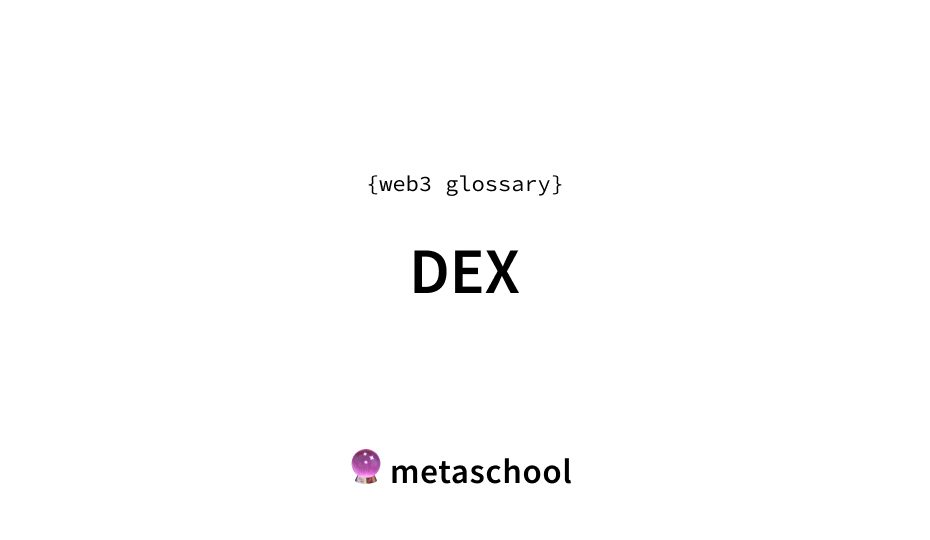Table of Contents
What is a DEX/decentralized exchange?
DEX stands for decentralized exchange/s. These are peer-to-peer trading platforms where a user can buy, sell and exchange cryptocurrency. Because they’re decentralized, users can directly sell or purchase crypto from any other user using their own wallets without depending on a third party.
DEXs usually have a utility or governance token that has benefits like governance rights, liquidity, and staking rewards; only the token holders can utilize these benefits. They run on different blockchain ecosystems and their working is almost the same as a centralized exchange except users have full ownership and control over their funds and private keys.
Moreover, decentralized exchanges rely on self-executable smart contracts to allow traders to execute orders and transfer funds. This happens without intermediaries otherwise present at centralized exchanges.
With the rise of DeFi, the adoption of decentralized exchanges has been increasing. In fact, they have experienced exponential growth in the last 3 years and recorded trillions of dollars in trading volume.
Origin of DEX in crypto
In cryptocurrency, DEXs were first introduced in the year 2014. DEXs primarily used a peer-to-peer trading mode for the users to sell, buy and trade their crypto assets.
The earliest versions of DEXs were not too advanced and fairly difficult to put into use. However, there is a wide range of options available to choose from today.
Moreover, the inception of smart contracts has further added to the overall efficacy and efficiency of DEXs.
The earliest DEX platforms have been seen to be using something called order books. Over time, the record-keeping mechanisms in DEXs have changed for the better.
The inclusion of liquidity pools in crypto further added to these platforms’ overall liquidity status and gave an incentive to the users to use DEX platforms for their crypto assets.
While previous DEXs had limitations of their own, the latest DEXs are only getting better and stronger by the minute.
Lastly, it is important to note that DEX did not rise to popularity until DeFi (Decentralized Finance) was introduced and eventually became a big thing.
Differences between centralized and decentralized exchange platforms
| Function | Centralized Exchange | Decentralized Exchange |
| Control | Owned and controlled by a central organization | Users have control and can manage using their private keys |
| Security | More vulnerable to hackers and other attacks | Users’ private keys provide a higher level of security |
| Transparency | Lack of transparency | Everything is crystal clear |
| Liquidity | Larger user base leads to higher liquidity | Smaller user base leads to lower liquidity |
| Speed | Higher trading fees and higher speed | Lower trading fees and lower speed |
Best decentralized exchanges and their tokens
DEXs give users freedom and ownership and are playing an important role in the growth of DeFi.
- Uniswap – an automated liquidity protocol built on the Ethereum Blockchain. Users can trade here without the need for a central authority. Moreover, users can launch ERC-20 tokens on Uniswap as well. It has a token named UNI which is used to govern Uniswap.
- PancakeSwap – a DEX powered by the Automated Market Maker (AMM) model built on the BNB Smart Chain. Users can trade without third-party interference, swap BEP-20 tokens, and earn different rewards by staking tokens in liquidity pools. Its token, CAKE, is used to govern the Pancake ecosystem.
- Stellar – an open-source payment protocol serving as a DEX built-in order book. It allows users to move or store any form of money at a low price. XLM is Stellar’s native coin and acts as an intermediary currency during transactions.
DEXs give users freedom and ownership and play an important role in the growth of DeFi.
